We live in a new time .Fast, loud, digital.
A time where tradition quietly slips into the background.
But if you’re someone who lives far from home…
you know that tradition doesn’t disappear.
it settles quietly in your heart.
In fact, we often become more traditional abroad than we ever were at home.
Distance makes the heart remember what routine made us forget.
We start missing the things we once rolled our eyes at
Sunday lunch, grandma’s pita, the sound of the rolling pin,
the way grandpa poured rakija like it was a holy ceremony.
Living far away doesn’t erase tradition.
It awakens it.
And when we begin to forget, there are always our grandparents
to remind us where we come from.
Grandparents: The Last Poets of Everyday Love
Our grandparents never needed big words.
They had their own way of saying everything :
“I love you.”
“I’m proud of you.”
“You’re safe here.”
But you’ll almost never hear those exact words.
Because in the Balkans, love isn’t something we say
it’s something we do.
Something we serve.
Something we remember to give you, again and again,
until you’re full… and even then, just one more bite.
Love in the Form of Food
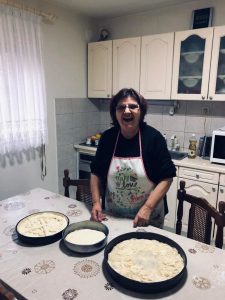
When I walked into my grandma’s house,
she didn’t say “I missed you.”
She said:
„Гладна си? Јади нешто.“
(”Are you hungry? Eat something.”)
Even if I said no, she’d ask again in ten minutes.
And again in thirty.
You couldn’t leave her house without being fed.
Not because you were hungry ,but because she couldn’t let you go without love. Food was her way of keeping you close, even when you were about to leave.
4. Pita, Burek,Sweets and the Taste of Home
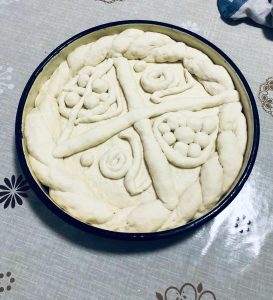
There’s a kind of comfort you only find in your grandmother’s hands.
Pita wasn’t just food — it was art, made with rhythm and memory.
No measuring cups. No recipe books.
Just years of knowing how thin the dough should be,
and exactly how long to wait before opening the oven.
If she really loved you that day, she’d make burek too.
Flaky, warm, with just the right amount of oil.
She’d cut it into uneven pieces and always give you the biggest one.
“Јади, јас подоцна…”
(“You eat, I’ll eat later,”) she’d say
knowing she never really would.
Because your joy was her meal.
That kitchen was her love language.
And she spoke it fluently.
5.The Notebook (Тетратка): A Cookbook of the Soul
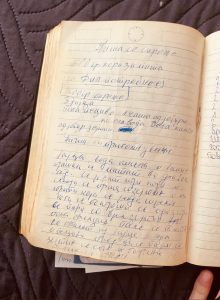
In our family, the notebook (тетратка)is pure gold. It’s not just a place to keep recipes; it’s a quiet archive of tradition, handwritten and passed from one generation to the next. My grandma had it. Her mother had it. And the mother of her mother probably started it all. Inside are pages filled with recipes not found on the internet , not really. You might find something similar online, but there will always be something missing. A taste. A smell. A memory. That unexplainable taste(шмек) only grandma knew how to create.
And we all say the same thing: “It’s good… but it’s not like grandma’s.”
Because we are the kind of people who never followed recipes exactly. We always added something random . A bit more of this, a splash of that, a spice that just felt right in the moment. And when it turned out perfect, someone would always ask for the recipe. That’s how the notebook grew.
Neighbors would come by, relatives would call, and grandma would open that notebook, proudly flipping through the pages stained with oil and love, to share what she had written down or remembered from someone who once shared it with her.
That notebook is the heart of the kitchen. It’s not clean or perfect. The paper is wrinkled, the ink is faded, but it holds the kind of wisdom that no Google search can replace.
Every recipe has a story. Every line is filled with someone’s name:
“From your Aunt”
“Learned from the neighbor .”
“Passed down from my mother.”
It’s not just food.
It’s memory.
It’s connection.
And that notebook our will keep traveling through our family, from one generation to the next, as the most delicious kind of inheritance.
💬If you also grew up with a grandma who spoke love through food. What recipe brings you home the moment you smell it? I’d love to hear your story.
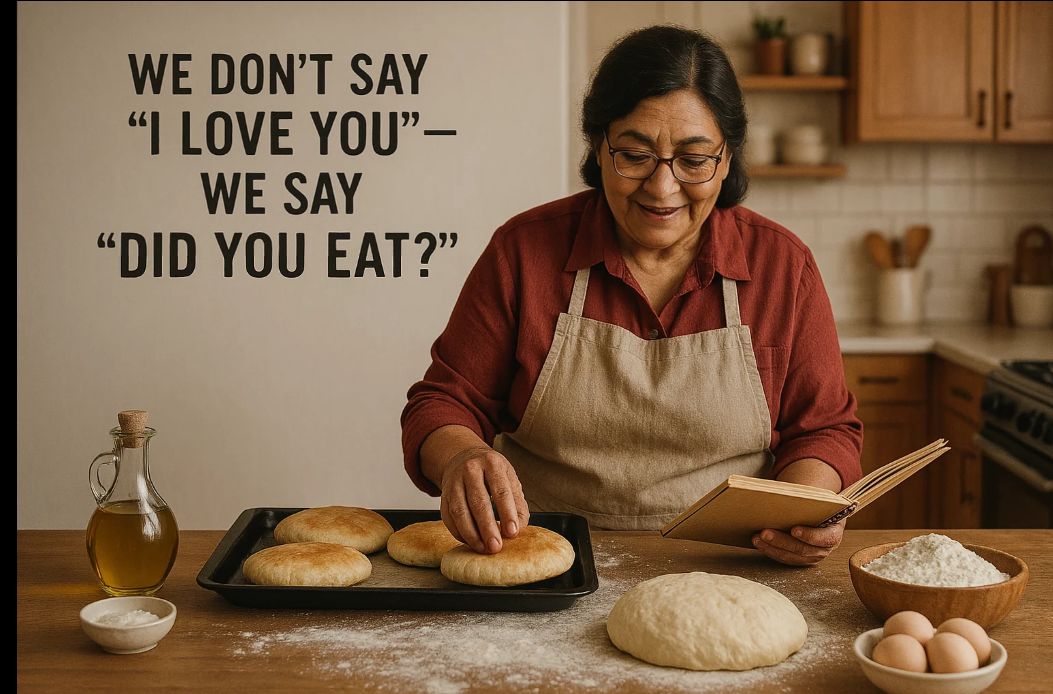


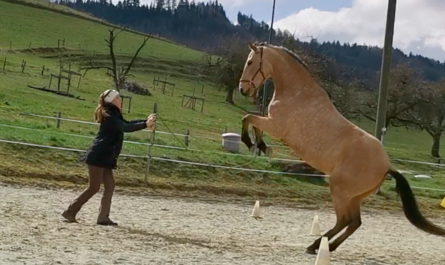
This is so true !